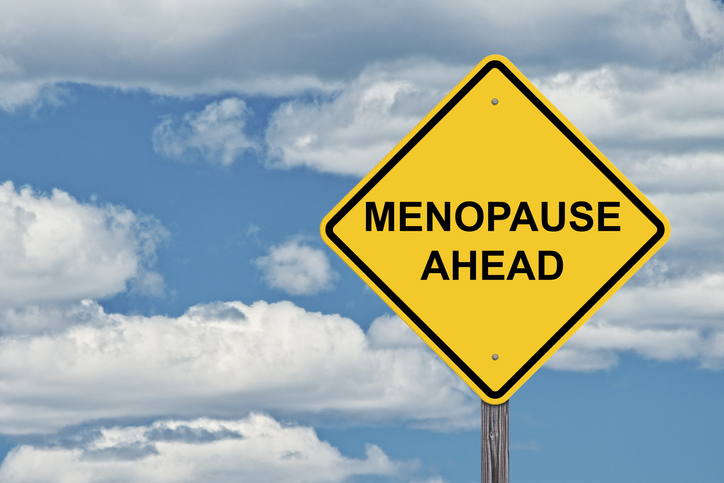The Truth About Menopause
Menopause affects everything from our sleep to our happiness and even our heart health.

Menopause, by definition, is when you have gone exactly 1 year without a period. So, if you get your period in February and it then again in September, you are not in menopause.
What you are in is perimenopause, where your hormones are declining and changing – often on a monthly basis.
What to expect
The symptoms of the menopausal transition are inevitable for most of us and although menopause may be natural, nothing about it feels normal.
You may have a light period one month, nothing the month or so after, and then out of the blue a heavy period comes on.
This is all related to the changing levels of your hormones and you can see a number of symptoms appearing:
– Hot flushes
– Mood swings
– Brain fog/distraction
– Rising anxiety or depression
– Sleep difficulties
– Loss of libido/sexual difficulties
– Heart Palpitations
Other factors affecting your symptoms
Of course not all women experience the same symptoms, or the same severity, but it is all down to your shifting hormone levels – but that’s not the only thing that will affect you.
If you are getting heart palpitations for example, and they can often happen during hot flushes, but are influenced also by:
– Stress
– Intense exercise
– Caffeine, alcohol, and nicotine use
– Some cough and cold medicines, and asthma inhalers
– Fever
Menopause and sleep
If it’s not being able to get to sleep, waking up with night sweats, bladder issues that get you out of bed, and then not being able to get back to sleep, these are all common complaints at menopause.
Poor sleep affects so many body functions: you are more stressed, and that in turn will impact your hormones and any associated symptoms.
A few simple things can help: cut out caffeine from tea, coffee and chocolate and don’t have alcohol at bedtime, as it may make you sleep for a bit, but then it can wake you up early, or cause restless sleep.
Daily exercise will help, and don’t eat late at night as your body will keep you awake as it tries to digest the food – a light meal early in the evening can really make a difference.
Menopause and headaches
Headaches, and often migraine headaches, are a common symptom around peri/menopause.
Migraines in particular have been linked to hormonal shifts and signs that you are having one include trouble with light, nausea or vomiting, and sometimes an aura, or visual changes that precede the pain. You might see lights, wavy lines, or other disturbances. You could have issues with speech, or notice numbness and tingling.
If your symptoms are severe, see a doctor as aura symptoms have been linked with stroke later in life. For most women they are literally a pain, and something that may need treatment now, but which will come to an end when menopause does.
Tension headaches can also become more frequent with menopause. These are easier to deal with, and are often a side effect of stress, both emotional and hormonal.
You may find you can handle them by taking a nap, a bath, doing some exercise or yoga, or taking a painkiller for temporary relief.
Menopause and brain fog
It’s that sudden inability to concentrate … forgetfulness … problems with word recall … and brain fog. It may feel like impending dementia, but it’s actually caused by shifting hormones.
If you’re having trouble recalling all the details of life that you used to know instantly then these sudden “senior moments” can be upsetting and even alarming.
Menopause brain is a temporary condition. You can ease it by going back to the basics: eat healthy food, watch your alcohol intake, and exercise both your body and your brain by keeping it active with puzzles, crosswords or anything that makes you have to think.
Menopause and heart disease
Women are often very concerned about their breast cancer risk,, but actually heart disease is the No. 1 killer of all women, and the rate is highest about 10 years after menopause.
This is because risk factors continue to increase, such as an expanding waistline and overall weight gain.
Also a lack of sleep can lead to high blood pressure and obesity, which can lead to diabetes and associated with heart disease risk.
Simple ways to reduce that are to have hormone balance, exercise and a healthy diet.
Menopause and osteoporosis
Women start experiencing bone loss from age 35 onwards, but menopause can significantly speeds bone loss and increase osteoporosis risk.
Research indicates that up to 20% of bone loss can happen during these stages of menopause and approximately 1 in 10 women over the age of 60 are affected.
When you lose bone density, you’re more likely to have fractures, and this can cause significant health issues.
You need oestrogen to clear away old bone, but it is progesterone that builds new bone so check you are not oestrogen dominant and have good hormone levels.
Weight bearing exercise and a good diet are key here and a scan will help assess your bones – particularly important if you have any family history of this.
Supplementing with a combination of vitamin D, calcium, magnesium, boron and vitamin K may also be helpful.
Helpful information:
Menopause isn’t something to dread but is the start of a new way of life.
The best way to approach it is to see it as an opportunity for the beginning of self-care, self-nurturing, and self-fulfillment.
Not sure about your hormone balance? To see what hormones you may need help with, this article has information for you.
https://anna.blog.wellsprings-health.com/which-hormone-or-hormones-might-you-need/


















